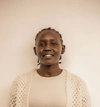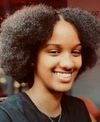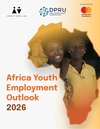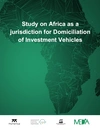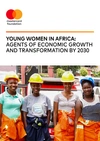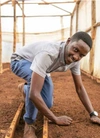Rwanda
The Foundation’s Young Africa Works strategy in Rwanda is focused on supporting and enabling employment for young people, which is considered a key driver to unlocking prosperity. Our areas of focus in Rwanda include education, vocational training, and entrepreneurship across sectors such as agriculture, hospitality and tourism, and the digital economy.

-
Goal
Enable access to 300,000 dignified and fulfilling work opportunities for young women and men by 2030.
Improve the quality of teaching and learning in secondary schools so young people have the skills and competencies they need to succeed in work and in life.
-
Context
Rwanda is experiencing a period of sustained economic growth, social development, and political reform, lifting a million people out of poverty. Rwanda has set ambitious targets to achieve middle-income status and is in the process of developing its National Strategy for Transformation and Vision 2050. The population is young and growing; close to 80 percent of Rwandans are below the age of 35, and the median age is 23.
-
Approach
Our strategy in Rwanda focuses on micro, small, and medium-sized enterprises (MSMEs) and entrepreneurship, primarily in the agricultural and tourism and hospitality sectors. Education, skill development, and the digital economy are considered key enablers for transformation, scale, and systems change in these sectors, and our focus is on enabling opportunities for young women, rural youth, refugees, and young people with disabilities.
We aim to support MSMEs and the entrepreneurship ecosystem, enabling enterprise development and growth in agriculture and in tourism and hospitality.
Improving work opportunities in the agricultural sector for young people, particularly young women, is a priority. Our vision is to support a better-skilled workforce, leading to a well-coordinated sector and innovative value chains.
Our work also focuses on diversifying the tourism and hospitality sector so that it offers innovative, resilient, and inclusive ways to enhance dignified and fulfilling work opportunities for young people, especially young women.
Additionally, we will work to equip young people in Rwanda, especially young women and young people facing the highest barriers, with industry-relevant education and key skills for the 21st century workforce and to actively contribute to Rwanda’s growing economy.
-
Priority
MSME support
Entrepreneurship development
Agriculture
Tourism and hospitality
Education and skills
Digital economy
Programs in Rwanda
The Foundation’s Rwanda office is located in Kigali and currently supports almost 30 active partnerships in the country. Focus sectors for Young Africa Works in Rwanda include education, agriculture, hospitality and tourism, and the digital economy.
Research from Rwanda
View All-
Africa Youth Employment Outlook 2026
Education and Transitions Burkina Faso, Guinea-Bissau, Djibouti, Mozambique, Egypt, Benin, Ghana, Senegal, Zambia, Uganda, Côte d’Ivoire, Sierra Leone, Eritrea, Gambia, Eswatini , Ethiopia, Democratic Republic of Congo, Tanzania, Nigeria, Zimbabwe, South Sudan, South Africa, Cameroon, Niger, Morocco, Kenya, Malawi, WAEMU, Chad, Mali, Rwanda, Togo, Somalia -
Building the Agriinfluencer Network
Agriculture Kenya, Rwanda, Ghana, Senegal, Uganda, Nigeria -
Study on Africa as a Jurisdiction for Domiciliation of Investment Vehicles - Full Report
WAEMU, Kenya, Rwanda, Burkina Faso, Guinea-Bissau, Djibouti, Mozambique, Egypt, Benin, Ghana, Senegal, Zambia, Uganda, Côte d’Ivoire, Sierra Leone, Eritrea, Gambia, Eswatini , Democratic Republic of Congo, Tanzania, Nigeria, Zimbabwe, South Sudan, South Africa, Cameroon, Ethiopia, Niger, Morocco, Malawi, Chad, Syria, Mali, Togo, Somalia -
Young Women in Africa: Agents of Economic Growth and Transformation By 2030
WAEMU, Kenya, Nigeria, Rwanda, Uganda, Ethiopia, Ghana, Senegal
Latest from Rwanda
-
New Report Deepens Understanding of Africa’s Youth Labour Market
-
Rwanda Stakeholders Renew Commitment to Expanding Inclusive Finance for Rural Young Women Entrepreneurs
-
African School of Governance’s Pioneer MPA Class Celebrates Matriculation with a Student Dialogue with President Paul Kagame and Former Prime Minister Hailemariam Desalegn
-
40% Of Tasks In Africa’s Growing Tech Outsourcing Sector May Be Affected By AI By 2030
-
Mastercard Foundation President and CEO, Reeta Roy, Announces Decision to Transition from the Foundation
-
New Study Reveals Domiciliation as Key to Mobilizing Capital Flows in Africa
-
Upskilling Educators to Enhance EdTech Delivery
-
Africa’s Creative Goldmine: Unlocking Growth Amid Gendered Challenges
-
Underwriting Foundational Infrastructure Through Creative Use Of EdTech Resources
-
The Mastercard Foundation Scholars Program Accelerates Impact With Three New Partnerships In Africa
-
Investing in public administration data systems to support decision-making
-
Opinion: Africa's AI Future Hinges On Youth Investment






